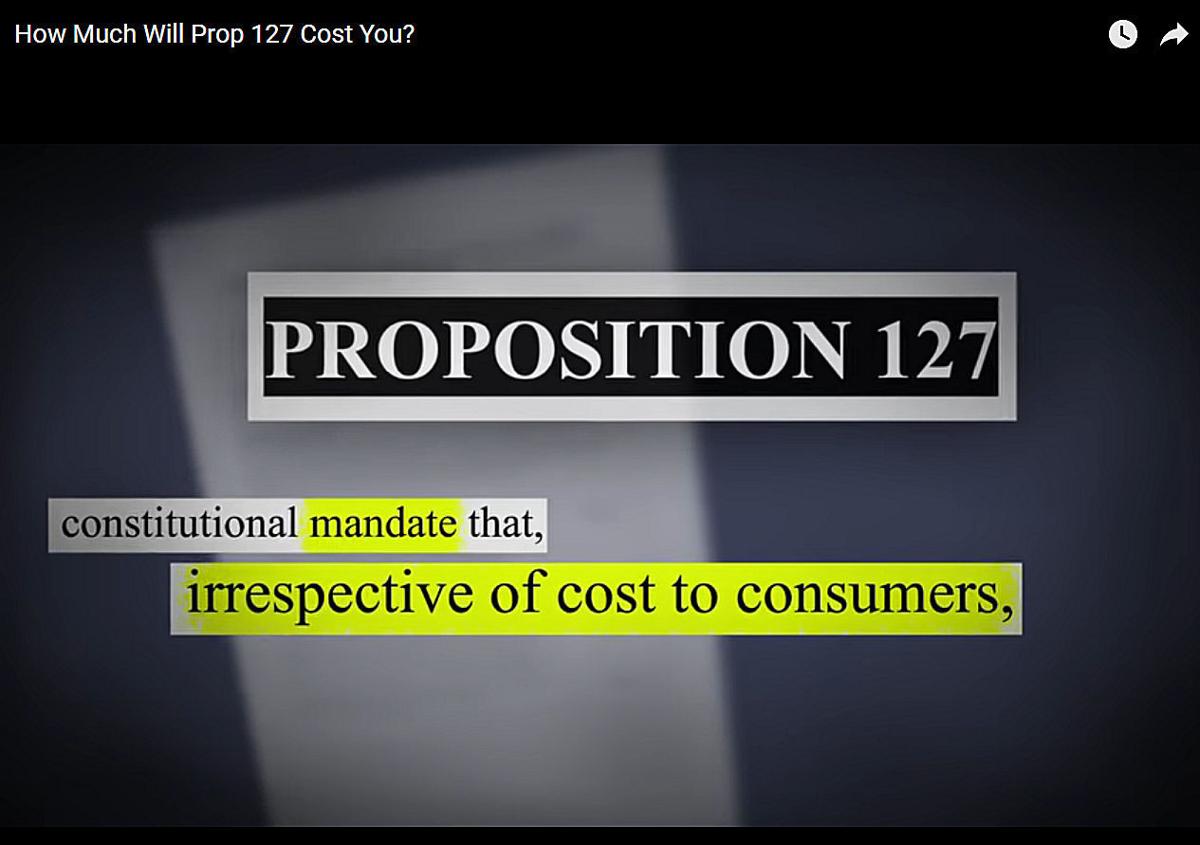PHOENIX — A key aide to Arizona Attorney General Mark Brnovich altered the ballot description of the renewable energy initiative, Proposition 127, adding a phrase that’s been heavily used in opposition advertising.
The state’s top elections officer called the inserted language “eyebrow-raising,” and the lawyer for initiative organizers said it is designed to help utility Arizona Public Service defeat the measure.
Brunn Roysden took the explanation crafted by state Elections Director Eric Spencer and added the words that the proposition’s requirements, if approved by voters, would come “irrespective of cost to consumers.” That’s precisely the argument APS has been making against the measure.
Within days, a picture of the ballot with that new language showed up on APS-financed TV ads.
A spokesman for Brnovich said Roysden, acting chief of the office’s civil division, was within his legal rights to alter the description, and that the original description by Spencer was inadequate.
But Spencer, who said his original explanation was what Arizona law requires voters to be told, suggested the change in wording comes with legal and political risks.
The ballot measure would amend the Arizona Constitution to say that private utility companies must produce at least 50 percent of their electricity by 2030 from “renewable” sources. By contrast, the Arizona Corporation Commission, which has purview over those same companies, set a mandate of 12 percent by 2020 and 15 percent by 2025.
APS, the state’s largest utility, has taken the lead in fighting the measure, first with an unsuccessful lawsuit to keep it off the November ballot and now with an expensive campaign under the banner of Arizonans for Affordable Electricity to persuade voters that the mandate is a bad idea.
The central argument is the claim — disputed by Prop. 127 organizers — that the requirement will lead to sharply higher rates for customers.
By law, the Secretary of State’s Office, which Spencer works for, writes the wording that appears on the actual ballots sent to voters.
Spencer’s proposed language said the initiative would require utilities to hit the 50 percent requirement by 2030, noting that is a 317 percent boost from the current 2020 mandate. It also mentioned a requirement for utilities to boost what they get from “distributed generation,” essentially what they have to purchase from customers who have installed their own rooftop solar panels.
Roysden, whose office has to approve of final ballot language, struck some of what Spencer wrote and added a couple of points. One is that nuclear generation does not count as renewable under the proposition.
But the language that has alarmed an attorney for the initiative organizers, Jim Barton, and gotten the attention of Spencer spells out on the ballot that Proposition 127 would impose the mandate “irrespective of cost to consumers.”
The fact that APS is making that argument does not make it any less true, said Ryan Anderson, a spokesman for the Attorney General’s Office.
He said the current 15 percent mandate, enacted by utility regulators, can be changed if commissioners conclude that reaching that goal would have a serious detrimental effect on ratepayers.
By contrast, Anderson said, Proposition 127 would put the mandate into the Arizona Constitution and beyond the reach of the regulators. The only way to change it, he said, would be to put the issue back on the ballot.
The Secretary of State’s Office is obliged to use the new description.
Spencer expressed his surprise in an email to Roysden. “The Prop. 127 language is certainly eyebrow-raising because it cites information exogenous to the ballot measure itself,” Spencer wrote, using a term to mean that the words in Roysden’s explanation are not taken from the ballot language itself but from outside factors.
“But, I’m sure you’ve calculated the legal and political risks of adding that,” Spencer wrote.
Anderson defended the added language, saying the initiative, if approved by voters, will increase the amount of renewable energy utilities have to generate, “irrespective of the cost to consumers.”
Anderson said the fact that Barton did not sue to strip that language is proof that even initiative supporters acknowledge the added words are accurate. But Barton said that’s not true.
Barton said he got a copy of the ballot description the day before the ballots were to be sent to the printer. At that point, he said, it would be virtually impossible to persuade a judge to order printing delayed while the issue was litigated.
Barton also said the law in Arizona works against those who would challenge a ballot description.
“The case law on it says it has to be either arbitrary or undeniably inaccurate,” Barton said. “It’s a very, very high standard to be able to get ballot language struck down.”
There’s something else that bothers Barton.
Within days of Roysden adding the language to the official ballot description, APS had a TV commercial on the air with a picture of the revised wording, even highlighting the new language.
“I’m very suspicious of the use of that language in a commercial so soon after the language was released,” Barton said. “I think it’s suspicious.”
Anderson denied that Roysden or anyone in the office got the added language from anyone at APS. The new wording was not shared with the utility until it became public, he said.





